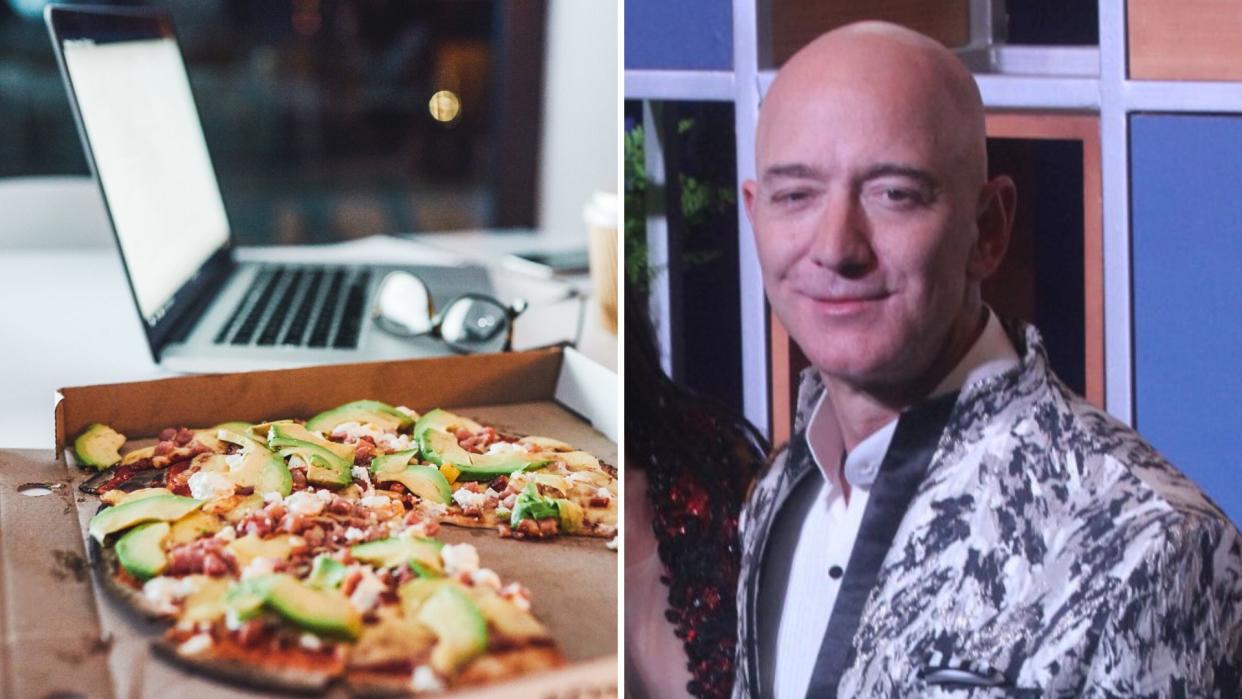The rule that made Jeff Bezos the richest person in the world

Amazon founder Jeff Bezos grew his company from a small online bookseller to the point now where he is the wealthiest person in the world.
While he and the ecommerce business have their detractors, Bezos must have done something right to pull off such remarkable success.
One of the workplace principles he adopted early within Amazon is called the "two pizza rule".
Bezos really hated employees wasting time over-communicating with endless meetings. So in 2002, he instituted a rule where all working teams in the company had to be small enough to be fed with just two pizzas.
The idea is that small teams can get things up and running quickly, without endless meetings.
"You don’t (in theory) need to fly to Seattle and schedule a bunch of meetings to get people to implement support for launching make-up in Italy, or persuade anyone to add things to their roadmap," said industry analyst Benedict Evans in his essay The Amazon Machine.
"You can add new product lines without adding new internal structure or direct reports, and you can add them without meetings and projects and process in the logistics and ecommerce platforms."
The rule was originally established for team sizes but later it evolved into a principle for the number of invitees to each meeting, according to CBInsights.
Amazon is a mammoth firm with 840,000 employees. But because of the two-pizza rule, over the years it has still come up with new inventions that are completely out of sync with what the existing business does.
Some of its biggest successes, like the Kindle, Amazon Prime and Amazon Web Services, reportedly originated from these small teams.
"This decentralized distribution of invention throughout the company – not limited to the company’s senior leaders – is the only way to get robust, high-throughput innovation," said Bezos in a letter to shareholders in 2013.
"What we’re doing is challenging and fun – we get to work in the future."
Bezos admitted such loose governance can sometimes see ideas that flop. But he doesn't seem to mind.
"Failure comes part and parcel with invention. It’s not optional. We understand that and believe in failing early and iterating until we get it right," he said.
"When this process works, it means our failures are relatively small in size (most experiments can start small), and when we hit on something that is really working for customers, we double-down on it with hopes to turn it into an even bigger success."
Follow Yahoo Finance Australia on Facebook, Twitter, Instagram and LinkedIn.



